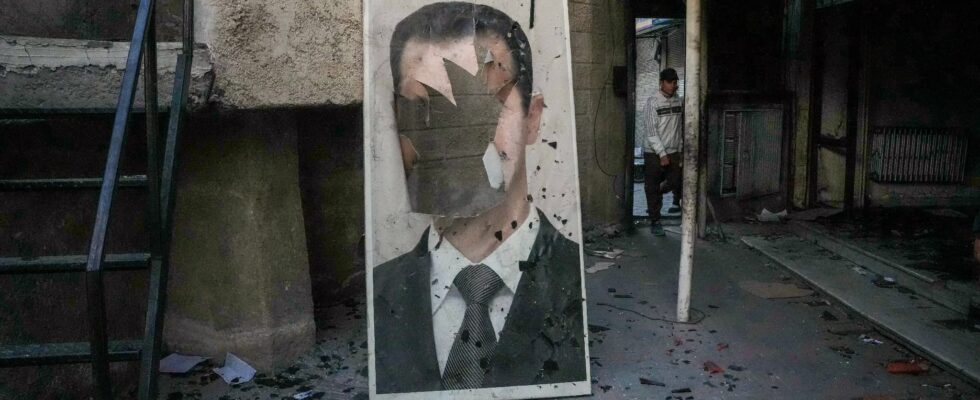Twelve days: that’s the time it took the rebel coalition of Abu Mohammed al-Joulani to rout the regime of Bashar al-Assad. Twelve days to mark the end of half a century of dictatorship and thirteen years of civil war which left around half a million dead. Ahmed Hussein al-Charaa – the new name for the leader of the Islamist group Hayat Tahrir Al-Sham – is a hero. The one that gives hope to the 5 million refugees, who had fled their country and are now thinking of returning. The one who liberates the Sednaya prison, north of Damascus, where thousands of people were locked up and murdered. The one who appears on CNN, advocating moderation and religious tolerance.
Ahmed Hussein al-Charaa, hero or bastard? The past of the liberator of Damascus resembles an already full criminal record. The forty-year-old may have swapped his jihadist outfit for a small, well-trimmed black beard and a khaki shirt, but this former member of Al-Qaeda, the Islamic State (IS) in Iraq, then the Al-Nusra Front in Syria appears high on terrorist lists, with a $10 million bounty on his head. Did you say hero?
The West has no choice
What if he was telling the truth when he said he had changed? Should we trust him? These questions, in reality, do not make sense. Because the West has no choice. Our countries which have abandoned the Syrian people to their own fate are hardly able to make their voices heard. Or perhaps we should have kept our commitments in 2013. When the famous red lines were crossed, when Bashar al-Assad spread chemical weapons on his population, it was necessary to respond, as the United States, the United Kingdom and France had promised. But Barack Obama, Nobel Prize winner though he was, sank into guilty hesitation, and from then on, neither Paris nor London could assist a Syrian people as isolated as they were disgusted. Resentment, eleven years later, is still present towards this West that was too absent when Hezbollah and Russian soldiers were flying to Assad’s aid.
On the night of December 7 to 8, Syria was liberated by itself but also thanks to the collapse of a regime running out of steam, the consequence of the Hamas attack against Israel on October 7, 2023. Even if it was facilitated by the Turks, it is a revolution in Syria by Syrians,” notes Marc Pierini, former EU ambassador to Syria and Turkey. The hope is there, immense. Fear too, that of the void, of the return of chaos and the bastards. But Syrians gaze with joy at the empty presidential palace in Damascus. Some remember these words written by teenagers in February 2011, on the walls of a school in Daraa, “Jay alek el ddor ya doctor” (“Your turn is coming, doctor”). It was the start of the Arab Spring in Syria. Doctor Bashar al-Assad’s turn has finally arrived. “Strangely, it is Syria which is this time the first to free itself from its tyrant,” notes Michel Duclos, advisor at the Montaigne Institute and essayist. (The Long Syrian Night, Ed. de L’Observatoire). Could this have a contagion effect? Other dictators in the region need to ask themselves questions.”
